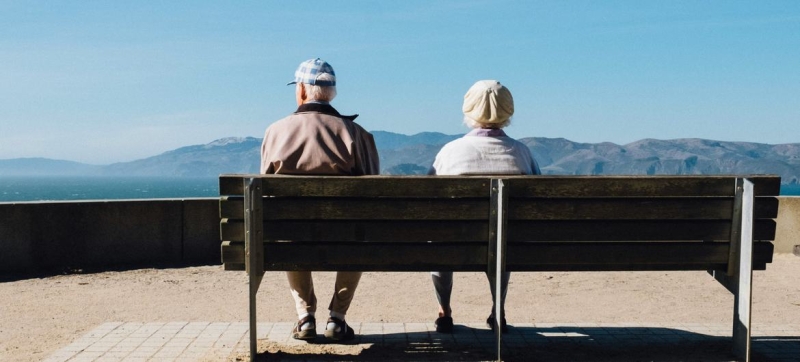
Without home-based care for the elderly, the EU’s healthcare system could collapse. WHO: People involved in informal care do not receive enough support Healthcare
“We were the invisible frontiers during the pandemic, but our work was truly overlooked before, just as it continues to be overlooked now,” says Ashlyn Harmon, who has spent 20 years of her life caring for parents. “When I first started taking care of them, I could not even imagine that I would do this for two decades. But I don’t regret anything…”
Ashlyn’s story, as shared by our colleagues at the World Health Organization (WHO), began in 2000, when her father required full-time care after a stroke. At first his mother Ashlyn looked after him, but in 2002 she was diagnosed with a rare form of leukemia and needed care herself. Two years later, my father was diagnosed with vascular dementia, and later also Alzheimer’s disease. Ashlyn returned to Ireland from the United Kingdom to care for both her parents.
“In 2014, my father moved into a nursing home, where he lived for another three years until he was 84.” , she says.
In 2013, my mother developed Parkinson’s disease, and in 2019, dementia. “The post-pandemic period was very difficult for my mother, and I wanted her to spend the last years of her life with me,” says Ashlyn.
The situation in which Ashlyn finds herself is in many ways typical. In the European Union, approximately 32 million women regularly care for family, friends or neighbors. In the EU, between 52 and 66 percent of all people involved in informal care are women. On average, they spend 17 hours a week on this.
Lack of support
For people involved in informal care, such Like Ashlyn, there are many roles to fill, filling gaps in care and support.
“You will have to become a social worker, a physical therapist, an occupational therapist,” she says. This comes with many challenges – emotional, physical, social and financial – that often leave people defenseless. They bear enormous burdens and yet receive little to no support or information needed to provide care.
“This seriously undermined my health, both physical and mental. Support for people involved in informal care is minimal,” says Ashlyn.
All people involved in informal care are at 20 percent greater risk of developing mental health problems. However, women are in an even more difficult position: they tend to be more involved in regular caregiving and have to juggle this role with other responsibilities such as work and childcare. In particular, long-term caregiving can have long-lasting negative effects on a person’s health and well-being that often linger long after the activity ceases.
Work goes unnoticed…
The hard work of caregivers often goes unnoticed. Women sacrifice their careers, free time, and the right to rest.
“I think a lot of informal caregivers don’t see themselves as part of the care workforce and don’t realize how important their work is,” Ashlyn says.
In the European Union alone, people involved in informal care contribute 39 billion hours of work each year. For this work to be performed by staff in the formal sector, an additional 19.5 million full-time workers would be required. Women in care work are much more likely to be forced to reduce or even stop paid work entirely. However, they often do not receive financial support, they do not receive pensions, they do not have the right to sick leave, and they have no other sources of income. In the long term, these people may fall below the poverty line, especially in the absence of effective social protection systems.
Without informal care, the health care system will simply collapse
“Sometimes you spend 50+ hours a week caring on top of your day job. In some situations, when formal sector services are not available, one has to work 120 hours. It’s very hard. I had no idea it was possible,” says Ashlyn.
Furthermore, the contributions of women informal caregivers cannot be assessed solely through the lens of economic value. Ashlyn’s example shows how important this contribution is not only to recovery from illness, but also to a dignified end of life. Women bring elements of compassion and empathy to caregiving, helping to create a culture of love, solidarity and support in families and communities.
“Without informal care, the health care system will simply collapse,” says Ashlyn. To strengthen the sustainability of care systems, recognize the enormous contributions of women, and promote healthy, respectful and loving communities, investments must be made to support, protect and empower people involved in informal care.
Read also:
WHO: large number of families in the European Region find themselves in poverty after paying for medical services
WHO assistance
World Health Organization (WHO) Regional Office for Europe in close working with regional and national carer organizations, raising awareness of the needs of people involved in informal care and facilitating the exchange of knowledge and experience between countries and regions.
Recognizing the growing support and information needs of people involved in informal care, WHO has begun work on an open access training course specifically designed for them. The Regional Office also helps countries coordinate interactions between formal and informal care and the people involved, so that their views can be taken into account when developing approaches to assessing the quality of care and reviewing long-term care services.
